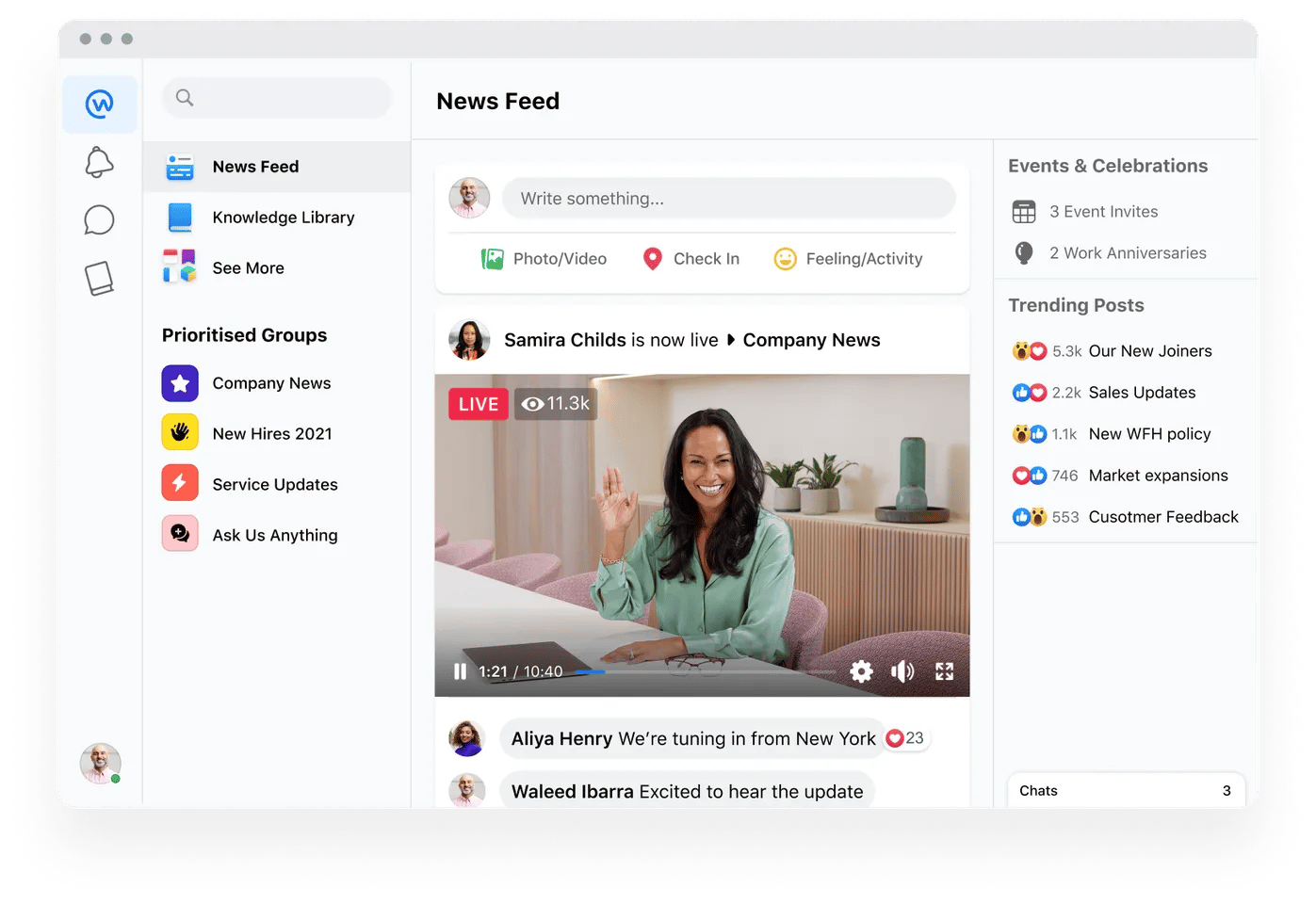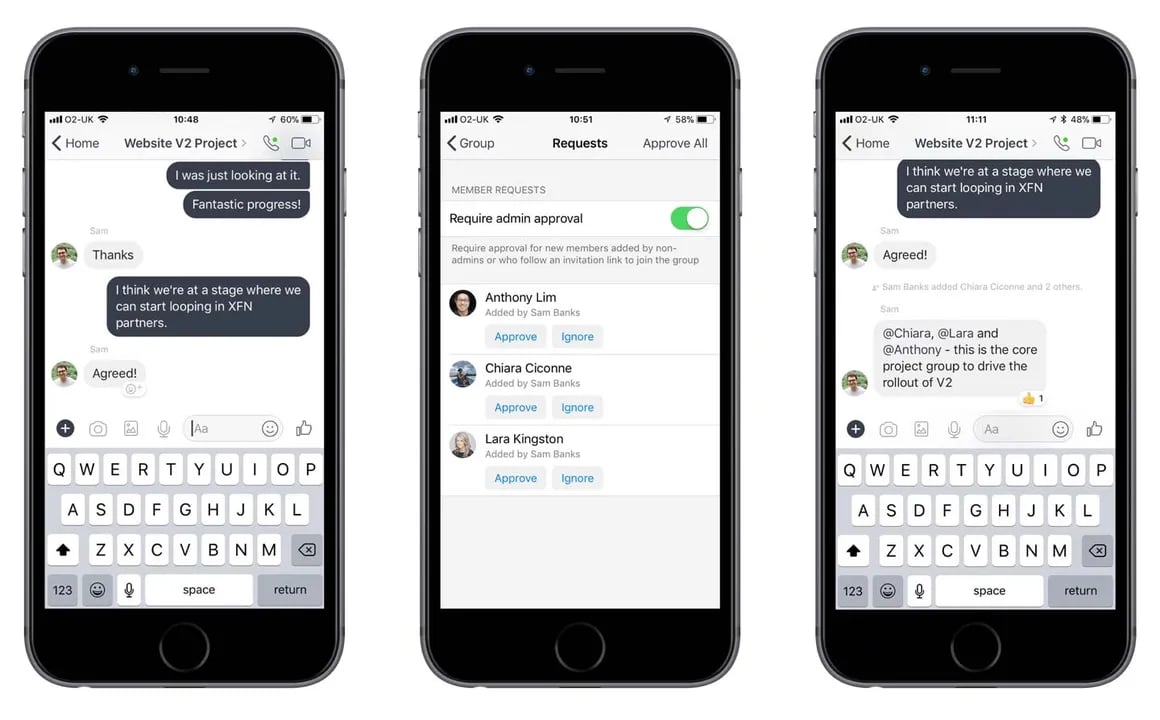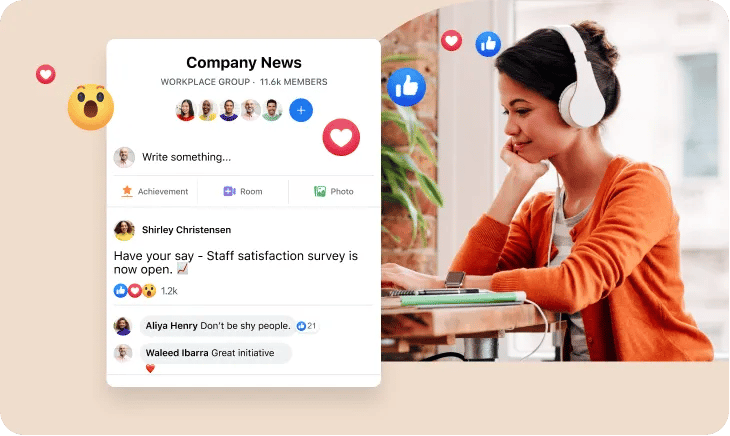An invisible force that binds a group of individuals together, shaping their collective identity, and influencing their shared values and behaviors. Sounds important right? This is what is commonly known as a team culture. In the professional realm, a positive team culture can significantly impact a company's success, employee satisfaction, and overall productivity.
In this blog post, we'll explore the essence of team culture, what it means, why it's important, and delve into practical strategies on how to build and maintain a robust team culture.
Table of contents:
❓ Why is Team Culture Important?
🛠️ How to Build a Great Team Culture
What is Team Culture?
Before we begin, let's make sure we're all on the same page. What exactly is Team Culture? Well, as the name suggests, team culture is the total of the shared values, beliefs, attitudes, and behaviors that define a group of individuals working towards a common goal. It goes beyond the surface-level interactions and forms the foundation for how team members collaborate, communicate, and approach challenges. A cohesive team culture fosters a sense of belonging, encouraging team members to align their efforts and work harmoniously towards shared objectives.
Defining team culture is similar to defining a group's DNA. It involves understanding the collective mindset, interpersonal dynamics, and the way team members interact within the organizational framework. Team culture is essentially the glue that binds individuals into a cohesive unit, guiding their actions and decisions.

Case study: Google
Effective team cultures come in various forms, tailored to the specific needs and objectives of each group. For instance, Google is renowned for its innovative and collaborative team culture, where employees are encouraged to think creatively and share ideas freely. It's clear that embracing creativity, seamless collaboration, and a flat organizational structure are key elements that contribute to its success. Google encourages its employees to think outside the box, work across disciplines, and engage in open communication, irrespective of hierarchies. This approach not only fuels innovation but also ensures that ideas flow freely, making everyone feel valued and empowered. Additionally, Google's commitment to experimentation and allowing employees to dedicate time to personally initiated projects further fosters an environment of continuous learning and breakthrough innovations. These principles serve as a valuable blueprint for organizations aiming to cultivate a dynamic and effective team culture,
Case study: Apple
Apple is often called the perfect example of a strong team culture. Apple Inc.'s success can be attributed to its unique approach to building and maintaining its team.
Apple Inc. stands as a paradigm of strong team culture, largely owing to its unique organizational approach and an unwavering focus on collaboration, creativity, and visionary leadership. Apple's functional organization is central to its culture, a distinct model that groups employees by expertise rather than product lines, fostering deep collaboration and innovation. This structure supports Apple's ability to produce integrated, user-centric products while also promoting accountability and alignment with the company's overarching goals.
Apple's team culture, inspired by Steve Jobs, thrives on a blend of unique structure, collaborative spirit, and a commitment to pushing boundaries, illustrating the impact of aligning organizational structure with innovation.
Why is Team Culture Important?
Team Culture is often treated like a buzzword that gets thrown around a lot, but team culture has the potential to make or break the company.
A positive team culture encourages open communication and collaboration, leading to more effective problem-solving and innovation. This leads to employees being more likely to be satisfied and engaged in their work and they feel a sense of belonging and purpose within their team. This sense of togetherness and cohesiveness promotes productivity as team members work together more seamlessly. In addition to this, employees are more attracted to companies with a positive team culture and are more likely to stick around.
How to Build a Team Culture:
Building a positive team culture is an essential component of organizational success, requiring deliberate action and collective dedication. Below are enriched strategies to foster a nurturing and robust team culture:
-
Define Core Values
-
Lead by Example
-
Encourage Open Communication
-
Promote Inclusivity
-
Invest in Team Building Activities
-
Acknowledge and Celebrate Success
-
Provide Professional Development Opportunities
-
Embrace Flexibility and Adaptability
1. Define Core Values:
Begin by delineating the core values that will serve as the bedrock of your team's behavior and decision-making processes. This crucial step involves a reflective examination of what your organization stands for and aims to achieve. Crafting a set of well-defined, resonant values not only anchors your team's identity but also provides a clear direction for how members should interact and contribute to the organization's mission. Embed these values into every facet of your operations, from hiring practices to daily decision-making, to cultivate a culture that truly reflects your organizational ethos.
2. Lead by Example:
Leaders must be the epitome of the organization's core values, embodying them in their daily actions and decisions. This visible commitment from the top down serves as a powerful model for all team members, signaling the importance of these values. By consistently demonstrating the behaviors and attitudes you wish to see within your team, leaders can inspire trust, respect, and emulation, effectively cultivating a culture that aligns with the organization's ideals.
3. Encourage Open Communication:
Cultivate a culture where transparency and openness are valued, creating channels for free-flowing communication. This involves not only facilitating regular dialogues through team meetings and brainstorming sessions but also establishing mechanisms for feedback and ideas. Such an environment not only promotes collaboration and problem-solving but also ensures that team members feel heard and valued, fostering a strong sense of belonging and mutual respect.
4. Promote Inclusivity:
Champion a culture that celebrates diversity and ensures every individual feels included and valued. This entails recognizing and appreciating the unique backgrounds, perspectives, and skills each member brings to the table. By creating an inclusive atmosphere, you unlock the potential for greater creativity, innovation, and problem-solving as diverse viewpoints are shared and explored.
5. Invest in Team Building Activities:
Go beyond traditional icebreakers with activities designed to deepen connections and build trust among team members. From retreats to skill-building workshops and joint projects, these experiences promote personal bonds and professional respect, laying the foundation for a cohesive and supportive team dynamic. Such activities should not only be enjoyable but also align with and reinforce your core values and objectives.6. Acknowledge and Celebrate Success:
Regularly recognize and celebrate achievements, both big and small. This practice not only highlights individual and collective contributions but also reinforces the behaviors and efforts that align with your organization's goals. Celebrating successes boosts morale, motivates continued excellence, and strengthens the team's collective identity and pride in their work.
7. Provide Professional Development Opportunities:
Demonstrate a commitment to each team member's growth by offering learning and development opportunities. This could range from training programs and workshops to mentorship and coaching, tailored to help individuals enhance their skills and advance their careers. Such investment shows that the organization values its people and is dedicated to their long-term success and satisfaction.
8. Embrace Flexibility and Adaptability:
In a rapidly changing work landscape, fostering a culture that values flexibility and adaptability is key. Encourage practices that allow team members to navigate and thrive amidst change, whether through flexible work arrangements, embracing new technologies, or adopting agile methodologies. This not only prepares your team to respond to external challenges but also cultivates an internal resilience and forward-thinking mindset.
Implementing these strategies with intention and consistency can transform your team culture into a driving force for engagement, innovation, and success, making your organization a place where people are excited to contribute their best work.
How Workplace from Meta Can Help You Achieve a Positive Team Culture
In today's digital era, fostering a positive team culture has transcended traditional boundaries, thanks in part to innovative platforms like Workplace from Meta. Workplace is a sophisticated communication tool designed to connect everyone in your company, from the ground floor to the C-suite, facilitating more open, transparent, and effective collaboration. By mirroring the familiar features of Facebook, Workplace offers a user-friendly interface that requires minimal training, ensuring high adoption rates across teams of all tech-savviness levels.
Key Features of Workplace from Meta and Their Impact on Team Culture:
-
Groups: Similar to Facebook's groups, Workplace allows the creation of dedicated spaces for different teams, projects, or interests. This feature encourages collaboration and ensures that relevant information reaches the right people efficiently. By fostering a sense of community, Groups can help reinforce your company's core values and keep everyone aligned with shared goals.
-
News Feed: The News Feed acts as a central hub for updates, announcements, and shared content within your organization. It's an excellent tool for keeping everyone informed and engaged, promoting transparency, and celebrating company milestones. Regular updates and success stories on the News Feed can boost morale and contribute to a positive company culture.

-
Workplace Chat: Instant messaging via Workplace Chat enables real-time communication, facilitating quick decision-making and problem-solving. It's especially beneficial for remote or distributed teams, helping to bridge the gap between different locations and time zones, and fostering a culture of immediacy and connectivity.

-
Live Video: With Live Video, leaders can broadcast important messages, conduct Q&A sessions, or share news with the entire company in real-time. This feature helps humanize leadership, making them more accessible and relatable to all employees, which is crucial for building trust and a sense of unity within the team.

-
Knowledge Library: A centralized repository for company resources, policies, and procedures, the Knowledge Library ensures that all team members have easy access to important information. This supports a culture of transparency and continuous learning, empowering employees by giving them the tools they need to succeed.
-
Recognition: Workplace enables public recognition of team members' achievements through posts, reactions, and comments. This feature helps foster a culture of appreciation and acknowledgment, which is vital for employee motivation and satisfaction.

By leveraging these features, Workplace from Meta can play a pivotal role in shaping and sustaining a positive team culture. It not only enhances communication and collaboration across the board but also supports the core values and strategic objectives of your organization, making it an invaluable tool for any company aiming to thrive in the modern workplace.
Conclusion:
In today's fast-paced corporate world, having a strong team culture can be the invisible force that boosts your company's success. It not only gives you access to the best talent in the employee pool but also helps reduce employee turnover.
But remember, this cannot be achieved overnight. Building a strong team culture is a continuous process that requires dedication, communication, and a shared commitment to core values. A positive team culture enhances collaboration, boosts employee satisfaction, and contributes to overall organizational success.
By defining and nurturing your team's unique culture, you set the stage for a thriving and dynamic work environment where individuals can collectively achieve their best.
A strong team culture is not just a goal; it's a journey that requires ongoing effort and a genuine investment in the well-being and success of every team member.
At LineZero, we acknowledge the importance of a positive team culture. Recognizing that the future of work is hybrid, an internal communication tool like Workplace from Meta can be game-changing in building and fostering a positive culture.
Learn more about how you can implement Workplace in your company and be part of the future of work.
Let’s Start Your Workplace Journey!
Tags:
Corporate CultureMarch 13, 2024



Comments